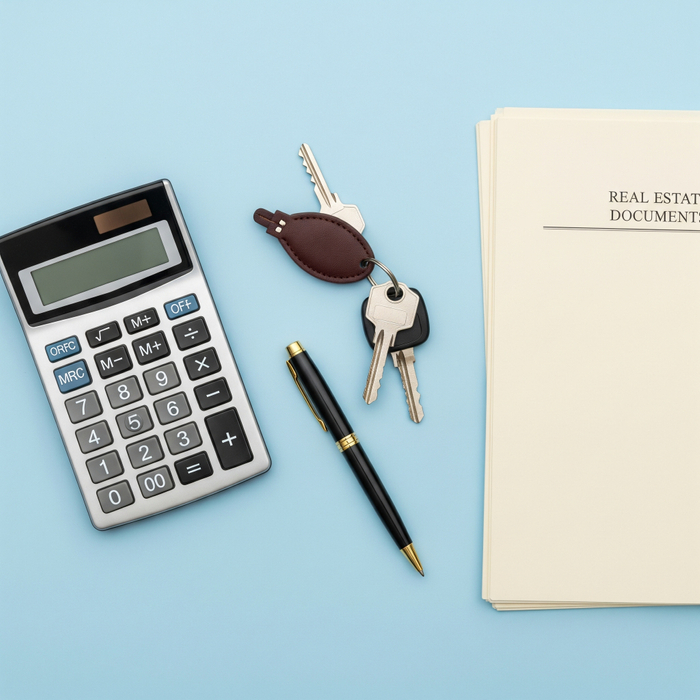Embarking on a home search in Los Angeles is a thrilling journey. The city's sprawling landscape offers a neighborhood for every lifestyle, from the sun-soaked beaches to the vibrant urban core. However, the unique and competitive nature of the L.A. real estate market can bring up many questions. To provide clarity and confidence as you begin your search, we’ve compiled answers to the most common questions we receive from prospective homebuyers just like you.
Commonly asked Questions when Buying a Home in Los Angeles

Understanding the L.A. Market Landscape
1. How Competitive is the Los Angeles Real Estate Market? Answer: Los Angeles is consistently one of the most competitive real estate markets in the U.S. This means you can expect multiple offers, particularly on well-priced homes in desirable neighborhoods. Be prepared to act quickly, have your finances in order, and potentially offer above asking price.
2. What are the Different Neighborhoods Like in Los Angeles, and How Do I Choose? Answer: L.A. is a vast city with incredible neighborhood diversity, each offering a unique lifestyle, vibe, and price point. From the beachfront allure of Santa Monica to the vibrant energy of Silver Lake, the suburban feel of the Valley, or the luxury of Beverly Hills, choices abound.
3. What is the Average Home Price in Los Angeles? Answer: This varies dramatically by neighborhood and property type (condo, single-family home, luxury estate). While the median home price in Los Angeles County often hovers around or above $900,000, some areas are significantly higher or lower.

The Financials of Buying a Home
4. What are Property Taxes Like in Los Angeles? Answer: In California, property taxes are generally calculated at 1% of the assessed value of the property (which is typically the purchase price). Additionally, there may be local assessments (Mello-Roos, special districts) which can add to the annual tax bill.
5. What are Mello-Roos Fees? Answer: Mello-Roos are special taxes levied by local government entities in certain communities, often to finance infrastructure like schools, parks, and roads in new developments. They are separate from regular property taxes and can add significantly to your monthly housing costs.
6. Are There Programs for First-Time Homebuyers in L.A.? Answer: Yes, various programs exist at federal, state, and local levels (e.g., CalHFA, FHA loans, down payment assistance programs). These often have income limits and specific eligibility criteria.
7. What are Closing Costs in Los Angeles? Answer: Closing costs typically range from 2-5% of the loan amount (not the purchase price) and include lender fees, title insurance, escrow fees, appraisal fees, recording fees, and prepaid property taxes/insurance.

Navigating the Process & Key Players
8. How Important is Having a Local Real Estate Agent? Answer: Crucial! A local L.A. agent provides invaluable insights into specific neighborhoods, market nuances, pricing strategies, and navigating competitive offers. They can also connect you with trusted local lenders, inspectors, and other professionals.
9. What's the Role of Escrow and Title Companies in California? Answer: In California, real estate transactions go through escrow, a neutral third party that holds funds and documents until all conditions of the sale are met. A title company researches the property's history to ensure clear ownership and issues title insurance.
10. Are Homeowners Associations (HOAs) Common, and What Should I Know About Them? Answer: HOAs are very common in Los Angeles, especially for condos, townhouses, and planned unit developments. They manage common areas and enforce rules.

Due Diligence and Important Considerations
11. What Should I Know About Earthquakes and Seismic Retrofitting? Answer: Earthquakes are a reality in California. While new homes are built to strict seismic codes, older homes (especially those built before 1979) may benefit from seismic retrofitting (like bolting the house to its foundation). Some properties may also require earthquake insurance.
12. What are Common Contingencies in L.A. Purchase Agreements? Answer: Common contingencies include inspection contingency (allowing the buyer to conduct inspections), appraisal contingency (ensuring the home appraises for the purchase price), and loan contingency (allowing time for loan approval). In competitive markets, buyers may remove some contingencies.
13. What is the Due Diligence Process Like? Answer: Due diligence involves thorough inspections (general home, pest, chimney, roof, etc.), reviewing all disclosure documents (seller disclosures, natural hazard reports, HOA documents), and researching the neighborhood and property history.
Your Los Angeles Home Awaits
Navigating the Los Angeles real estate market is a significant undertaking, but it doesn't have to be overwhelming. By understanding these key aspects—from market conditions and neighborhood characteristics to the financial and procedural details—you are better equipped to make informed decisions. With the right preparation and a knowledgeable team by your side, you can successfully find your perfect place in the City of Angels.
